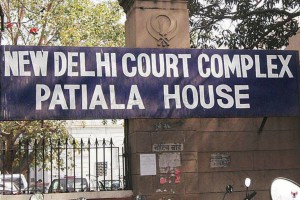Patiala House Court, New Delhi: While deciding the instant bail application of student activist Safoora Zargar, who was accused of giving inflammatory speeches, thereby inciting riots and violence in North East Delhi and was arrested and taken into custody under the provisions of the Unlawful Activities (Prevention) Act, 1967 [hereinafter UAPA], Dharmendar Rana, ASJ, refused to grant her the bail. Furthermore, pointing out that although no direct violence is attributable to the applicant/ accused, still she cannot shy away from her liabilities.
The Court said that, “When you choose to play with embers, you cannot blame the wind to have carried the spark bit too far and spread the fire”. However, taking note of the accused/ applicant’s pregnancy, he requested the Jail Superintendent to provide adequate medical aid and assistance to her.
The applicant/accused is a student of Jamia Milia University. It was alleged by the prosecution that she delivered an inflammatory speech at Chand Bagh area of North East Delhi. Aftermath of which, riots erupted leading to a great loss of life and property. As per the submissions of the Additional Public Prosecutor, Irfan Ahmed, there is enough evidence available on record to connect the applicant/ accused to the riots. It was further submitted that Section 43D (5) of the UAPA places a statutory restriction on the power of the Courts to release the applicant/ accused on bail. The prosecution further pointed out that certain incriminating materials were seized by the police and if this recovery is viewed against the backdrop of the inflammatory speeches given by the applicant/ accused and statements of the witnesses, then it is clear that the riots were a result of a conspiracy to overawe the government and disrupt the normal functioning of the capital city. Thus under these circumstances, the applicant- accused should not be granted bail.
Meanwhile, counsel for the applicant/accused, Sanya Kumar, contended that the applicant/accused is an innocent woman who has a contrary opinion on the Citizenship Amendment Act (hereinafter CAA) and had simply exercised her fundamental right under Article 19(1)(a) of the Constitution by being involved in a peaceful protest against the CAA. She further pointed out to the court that the applicant/accused delivered her speech on 23-02-2020 and riots started in the afternoon of 24-02-2020. The evidences clearly suggest that the applicant was not present on 24-02-2020, therefore the alleged violence cannot be attributed to her and the provisions of the UAPA have been wrongly invoked against her. The counsel also contended that the applicant/ accused should be granted bail on humanitarian grounds as she is 21 weeks pregnant and suffers from various other medical complications and given the spread of Covid-19, the applicant/ accused is particularly vulnerable.
Perusing the contentions of both the parties, the Additional Sessions Judge observed that freedom of speech and expression is indeed a foundation for strong and vibrant democracy, however the same is not an absolute right and is subject to the reasonable restrictions laid down in Article 19(2) of the Constitution. Considering the provisions of the UAPA, the Court observed that any activity which creates a disorder and disturbance of law to such an extent that an entire city is “brought down to its knees”, constitutes an ‘unlawful activity’ under Section 2(o) of the UAPA. Concurring with the contentions of the prosecution, the Court noted that it cannot ignore the material available on record which clearly suggests that there was a conspiracy to create an unprecedented scale of destruction and breakdown of law and order. Finding no merits, the Court thus dismissed the bail application. [State v. Safoora Zargar, Bail Application No. 1119/2020 , decided on 04-06-2020]

